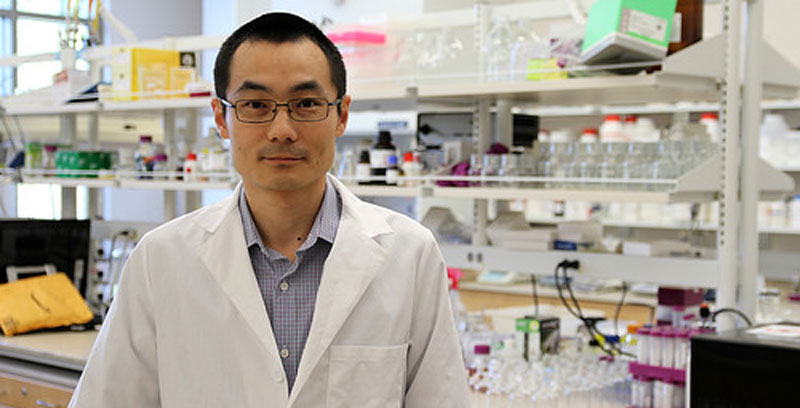Researchers at Auburn University are leading a $2 million U.S. Department of Energy initiative to improve fuel efficiency and economy.
As part of the program, the researchers will create a bio-based fuel additive that can blend with diesel fuel to reduce soot and greenhouse gas emissions and provide cleaner vehicle operation in cold weather.
The project is one of 42 totaling $80 million awarded by the Department of Energy to support research for vehicle technology.
“We are developing an integrated bioprocess for efficient butyl acetate (BA) production,” said Yi Wang, principal investigator for the project and assistant professor in the Department of Biosystems Engineering in Auburn University’s College of Agriculture. “We anticipate that adding BA to diesel fuel will reduce pollutants and costs associated with meeting environmental regulations.”
Butyl acetate, an organic compound that occurs naturally in various fruits, can be produced chemically. However, Wang says it is energy consuming and not environmentally friendly.
Researchers at Auburn have developed a CRISPR-Cas9 genome engineering system that has resulted in an engineered strain with the highest BA production ever reported in a microbial host.
“In this project, we will further enhance BA production through systematic genome engineering,” Wang said. “CRISPR technology has been used by many different labs, but we are one of the pioneering labs who have developed the customized CRISPR system that can be applied to the solventogenic clostridial strains, which are notoriously difficult to manipulate genetically.”
Wang also said that the knowledge from this research will be applicable to other bioprocesses and of broad interest to the scientific community.
“This project represents a complementary and synergistic collaboration between academia and industry,” Wang said. “Such efforts will decrease the cost and time required for developing new biotechnologies.”
MicroNiche technology has also been implemented into the production of high-efficiency BA.
“We are excited to be able to utilize our MicroNiche Engineering technology platform as part of this important project to help find better, more sustainable solutions for the transportation industry,” said Fatemeh Shirazi, CEO and CTO of Microvi Biotech Inc.
Cornell University researchers will examine fundamental aspects of blending butyl acetate with diesel fuel in the form of droplets representing the sub-grid element of spray used for fuel injection into combustion engines.
“Our studies will elucidate the role of blending BA on burning without the flow and transport complexities found in a combustion engine,” said Professor Thomas Avedisian of Cornell’s Sibley School of Mechanical and Aerospace Engineering.
“The data we obtain will have broader applicability that could lead to high fidelity models for predicting in-cylinder performance of BA blends in combustion engines,” he added.
The $2 million project is part of Auburn’s strategic partnerships with the goal of creating solutions to national needs.
@RealKyleMorris is a Yellowhammer News contributor and also contributes weekly to The Daily Caller













